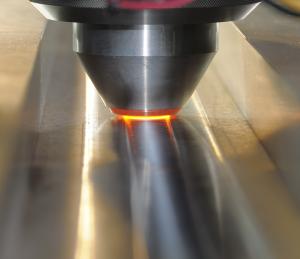F4E to study non-destructive testing technologies
29 Jun 2012
-
Aris Apollonatos, Fusion For Energy (F4E)
Testing components in a rigorous manner and identifying possible improvements before assembling them is a fundamental step in a project as technologically complex as ITER. The need for leading expertise and knowledge transfer is high on the agenda.
In line with the above considerations, a framework contract has been signed between ITER's European Domestic Agency Fusion for Energy and TWI Ltd, the World Centre for Materials Joining Technology, for a maximum value of EUR 800,000 over a period of four years. TWI will provide the European agency with know-how through engineering studies, assessments, technical audits and qualification procedures in the area of joining of components and non-destructive testing technologies.
The results will feed into the manufacturing processes of key structural components like the vacuum vessel and magnets, in-vessel components and the remote handling systems. In addition, modelling activities will be carried out in the areas of heat transfer, prediction of distortions and residual stresses.
The European Domestic Agency has already identified that the first engineering activities will concern the vacuum vessel and the toroidal field coils. A task on friction coefficient testing is envisaged for the vacuum vessel, while the quality of the welding procedure will be assessed for the toroidal field coils.


